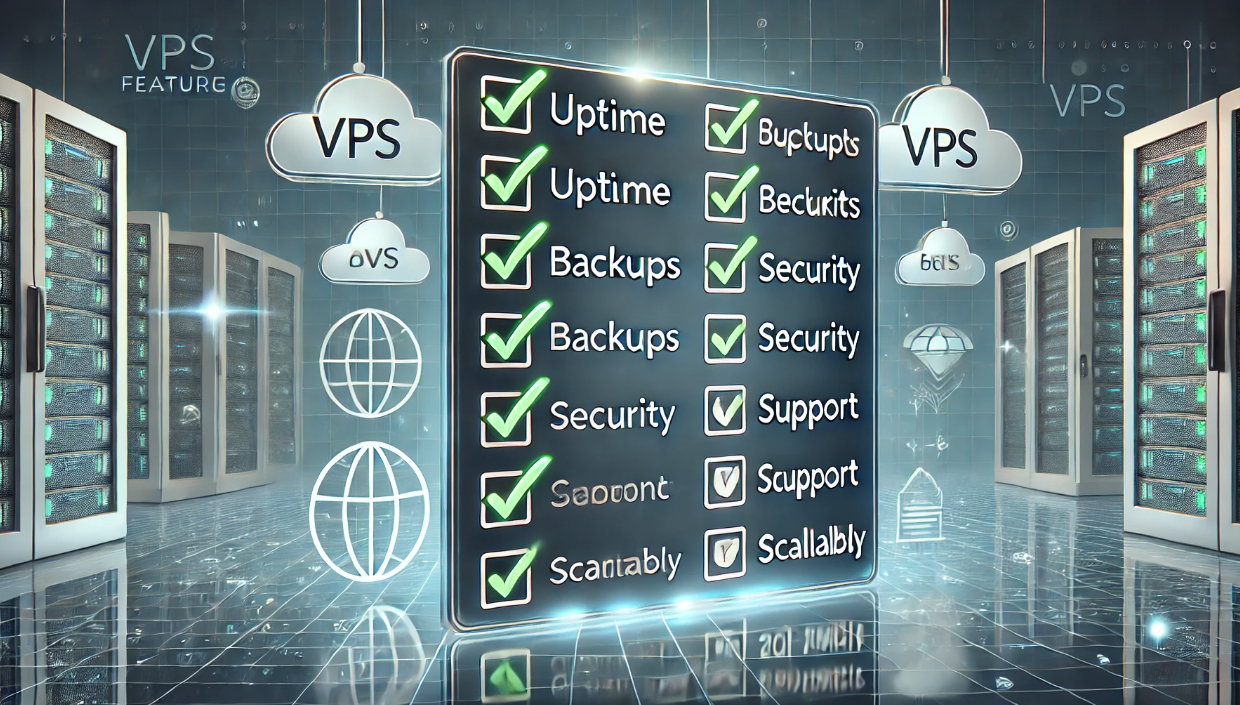What Makes a Good VPS Provider? 10 Features to Look For
Meta Description: Choosing a VPS provider? Discover the top 10 features that define a reliable, high-performing VPS host — from uptime and speed to security, scalability, and support.
Introduction: Not All VPS Providers Are Created Equal
With dozens of VPS providers out there promising the fastest servers and lowest prices, choosing the right one can feel like a gamble.
But a good VPS host is more than flashy specs. It’s the backbone of your website, app, or infrastructure — and it needs to be secure, stable, and scalable.
Whether you’re launching a business site, hosting client projects, or running apps and containers, here are 10 must-have features to look for in a VPS provider.
✅ 1. Consistent Uptime Guarantee (99.9% or Higher)
Downtime = lost traffic, lost customers, and damaged trust.
Choose a provider that offers:
-
99.9% or higher uptime SLA
-
Transparent uptime history
-
Proactive server monitoring
A great VPS provider ensures your project stays online — always.
⚡ 2. Fast and Modern Hardware
Performance matters — for SEO, UX, and app reliability.
Look for:
-
SSD or NVMe storage (for fast read/write speeds)
-
Latest-gen CPUs (AMD EPYC, Intel Xeon)
-
Generous RAM allocation (1GB+ for starters)
Speed isn’t a luxury — it’s an essential feature.
3. Strong Security Tools and Isolation
A good VPS should protect you — not just provide space.
Check for:
-
DDoS protection
-
Network firewalls
-
Root access with SSH key authentication
-
Isolation from other clients (KVM or full virtualization preferred)
️ Security is baked in, not bolted on.
️ 4. Root Access & Full Control
Developers and sysadmins need flexibility. Your provider should offer:
-
Full root access (sudo rights)
-
Control panel or API for automation
-
Support for custom OS installs or ISO uploads
You’re renting a server — not a walled garden.
5. Global Data Center Locations
Latency matters — especially for global audiences.
Pick a provider with:
-
Multiple data center regions (North America, Europe, Asia, etc.)
-
Ability to choose location during setup
-
Optional CDN integration for even faster delivery
Close servers = faster load times = better UX.
6. Reliable and Responsive Customer Support
Things go wrong. When they do, you want help — fast.
Look for:
-
24/7 live chat or ticket support
-
Knowledgeable, technical reps (not just salespeople)
-
Managed support options if you’re not a server expert
Good support turns a bad day into a fast fix.
7. Easy Scaling and Resource Upgrades
Your needs today aren’t your needs tomorrow.
Make sure your VPS host supports:
-
One-click CPU, RAM, or storage upgrades
-
Plan changes without data loss
-
Ability to switch to a dedicated server if needed
Scaling should take seconds, not migrations.
8. Backups and Snapshots
Disasters happen — backups save the day.
Your provider should offer:
-
Daily or weekly backups
-
On-demand snapshots before big changes
-
Easy one-click restore options
Peace of mind is a built-in backup plan.
9. Transparent, Fair Pricing (No Surprise Fees)
Beware of hosts that:
-
Advertise low intro prices, then skyrocket renewals
-
Charge hidden fees for bandwidth, backups, or IPs
Choose providers with:
-
Clear monthly or yearly plans
-
No surprise overage fees
-
Optional add-ons that are worth it
Budget VPS is great — but honest VPS is better.
10. Positive Reputation and Community Trust
Finally, check what the dev community and real users are saying.
Do they:
-
Get recommended on forums like Reddit, Stack Overflow, or Hacker News?
-
Have detailed reviews on platforms like Trustpilot or G2?
-
Offer transparency on performance, support, and pricing?
The best VPS providers earn trust — not just sales.
Final Thoughts: A Good VPS Host Is a Long-Term Partner
Your VPS isn’t just a piece of virtual hardware — it’s the foundation of your project’s success.
So before you sign up, ask yourself:
-
Will this provider grow with me?
-
Can I trust their support, uptime, and infrastructure?
-
Do I feel confident putting my code, site, or service in their hands?
Choose wisely — and your VPS will power everything you build for years to come.

